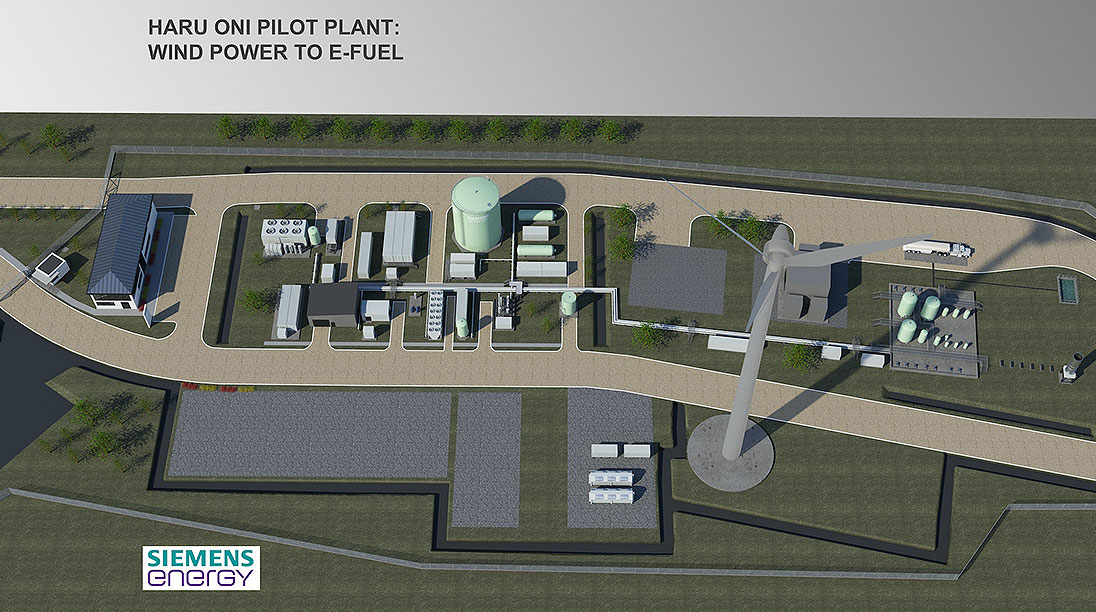Porsche R&D executive board member Michael Steiner said sustainable production of synthetic fuel – or eFuel – was important “because the combustion engine will continue to dominate the automotive world for many years to come.”
“If you want to operate the existing fleet in a sustainable manner, eFuels are a fundamental component,” he said.
Now Porsche has invested an initial €20 million ($A30.7 million), enlisted partners and has received German government grants to build the first of its plants in Chile.
With Siemens Energy, Porsche aims to build a pilot plant “to prove that the entire process chain works and can be industrialised,” said Mr Steiner.
The Chile plant, expected to start producing in 2022, is claimed to be the world’s first integrated commercial plant for producing climate-neutral fuel. The plan is to industrialise synthetic fuels and to reduce carbon emissions produced by its cars.
Porsche is initially planning to use eFuels for its motorsports programs – on race courses and in vehicle trials – and then look at its suitability in its production vehicles.

Chile aims to make about 130,000 litres of eFuels from 2022 and expand capacity in two phases, with an annual production of 55 million litres by 2024 and about 550m litres by 2026.
Siemens and Porsche have joined with energy firm AME, Chilean petroleum company ENAP and Italian energy company Enel in the program. Porsche will be the primary customer for the fuel.
Chile’s Haru Oni pilot project in the country’s Magallanes province takes advantage of the excellent wind conditions in southern Chile to produce climate-neutral fuel with the aid of green wind power.
The process involves electrolysis that splits water into its two components – oxygen and hydrogen – and then combining the hydrogen with air (after filtering out CO2) to form synthetic methanol. The methanol can be converted into climate-friendly fuel using an MTG (methanol to gasoline) technology to be licensed and supported by ExxonMobil.
Siemens Energy will employ its Gamesa wind turbines along with its PEM (proton exchange membrane) electrolysis to produce green hydrogen.
As part of Germany’s national hydrogen strategy, Siemens Energy will be supported with a grant of about €8m ($A12.3m) from the Federal Ministry for Economic Affairs and Energy.
In a statement, Siemens Energy CEO Christian Bruch said: “Establishing a sustainable energy economy is going to require some rethinking. Renewable energy will no longer be produced only where it’s needed, but where natural resources like wind and sun are available on a massive scale.”
The German government said it recognised that it will have to import energy in the near future to meet national demand.
It sees hydrogen as a fuel with an increasingly important role in storing and transporting energy.
Porsche CEO Oliver Blume said the project did not reduce the importance of electric vehicles.
“Electromobility is a top priority at Porsche,” he said.
“eFuels for cars are a worthwhile complement to that if they’re produced in parts of the world where a surplus of sustainable energy is available.

Haru Oni pilot plant
“They are an additional element on the road to decarbonisation. Their advantages lie in their ease of application: eFuels can be used in combustion engines and plug-in hybrids, and can make use of the existing network of filling stations.
“By using them, we can make a further contribution toward protecting the climate. As a maker of high-performance, efficient engines, we know exactly what fuel characteristics our engines need in order to operate with minimal impact on the climate.
“Our involvement in the world’s first commercial, integrated eFuels plant supports the development of the alternative fuels of the future.”
Porsche plans for half of all its vehicles sold to be electric by 2025 but said that its existing fleet is large.
“Our cars are driven for a very, very long time,” said Mr Steiner. “And, while our hybrid vehicles are powered electrically for short distances, they rely on their combustion engines over longer distances.
“We are not thinking of taking the pure combustion engine out of the product range and focusing solely on hybrids and electric cars.
“We are convinced that these three drive technologies will survive on the market in the medium term,” he said, but added hydrogen fuel cells were not currently in its plans.
By Neil Dowling












 Read More: Related articles
Read More: Related articles

